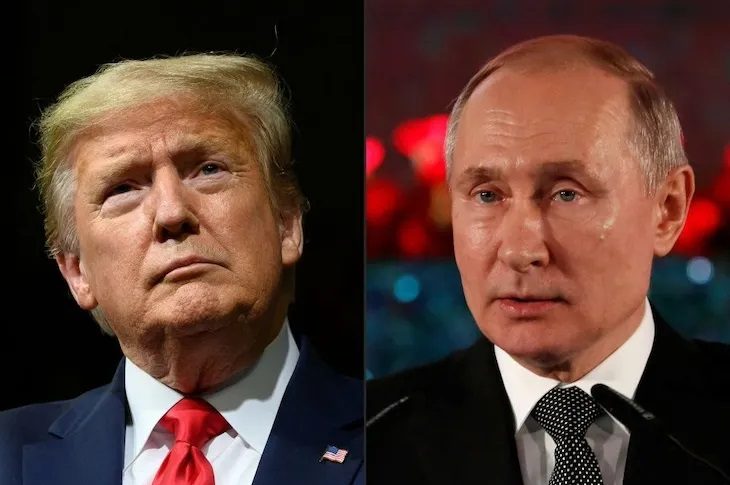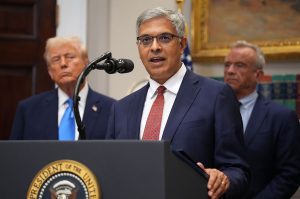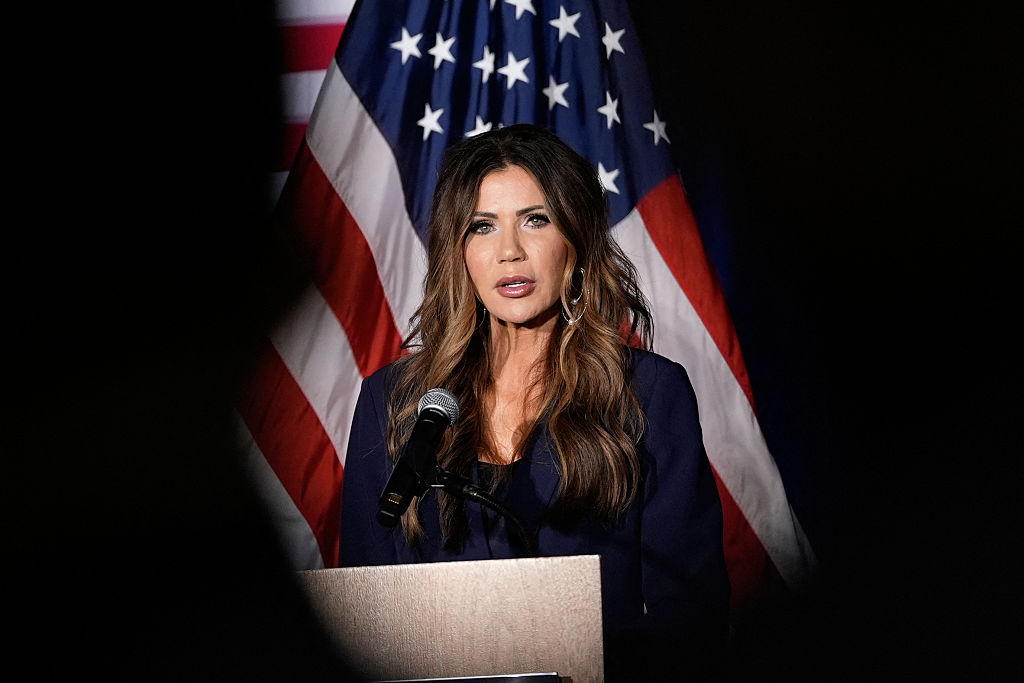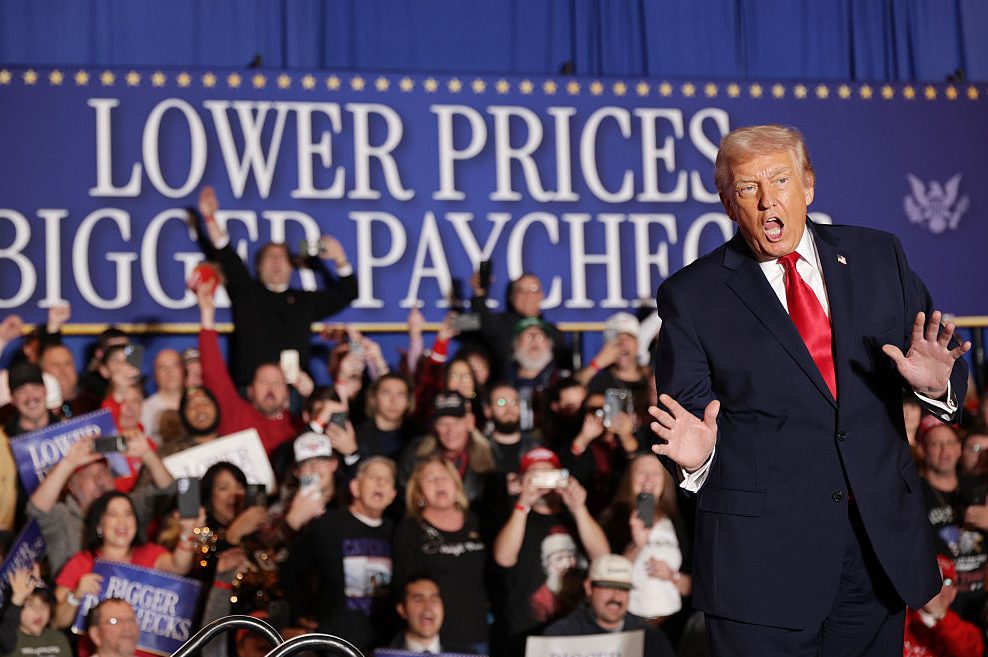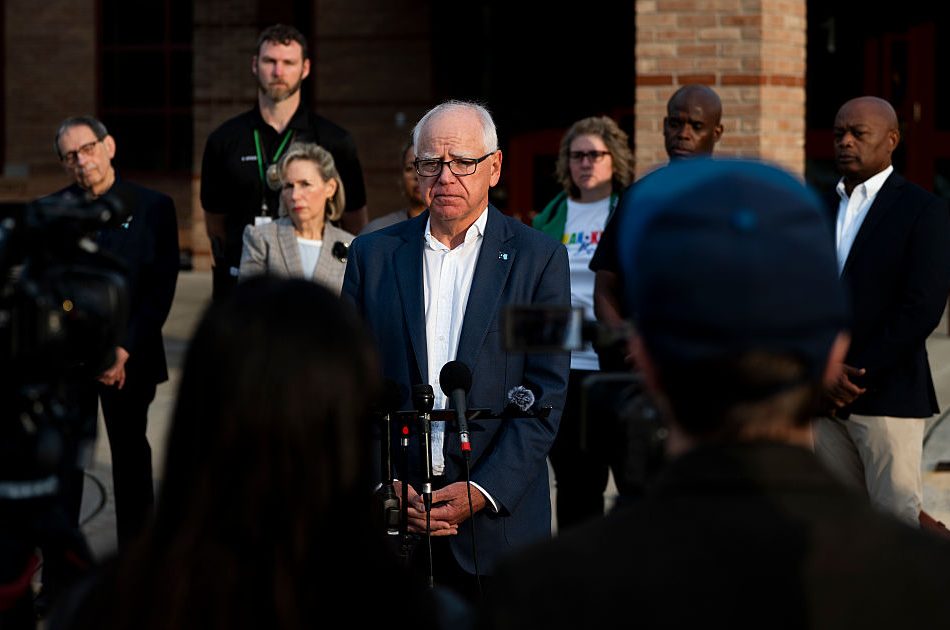There is no question that bombast sometimes works. President-elect Donald Trump warned hell would be unleashed if Hamas did not release its hostages and the war in Gaza did not end by January 20, his inauguration day.
He never explained what he had in mind to end the war, but he didn’t need to. The threat was enough. President Joe Biden and his national security team had done all the hard negotiating work for a deal but Trump’s stamp on it was conclusive.
Trump’s room for maneuver is limited. Bombast won’t do it, not this time
Can he now do the same with the war in Ukraine?
Trump’s main obstacle is undoubtedly Vladimir Putin. The Russian president will be a far tougher nut to crack, especially since he has shown no real interest in any compromise settlement.
Putin says he is happy to talk but he has already laid down his marker for a deal, effectively the retention of all the territory his troops have seized since February 24, 2022, and an agreement by Kyiv’s western backers that Ukraine will never join NATO.
Trump’s room for maneuver is limited. Bombast won’t do it, not this time. In fact, he has already had to drop his unrealistic pledge to stop the war on day one of his return to the White House.
Lieutenant-General Keith Kellogg, his special envoy for Ukraine and Russia, has provided, mistakenly in my view, his own timetable for bringing the war to an end, stretching the negotiating period to 100 days.
Twenty-four hours or 100 days will make little difference to Putin who holds more cards than Benjamin “Bibi” Netanyahu had in dealing with Trump. Netanyahu had everything to lose if he snubbed Trump. It was in his personal, and Israel’s national, interest to curry favor with the incoming president.
As a result, Netanyahu accepted the same deal which had been on offer, full stops and commas and all, since Biden outlined it in May. Keeping in with Trump was the priority for the Israeli leader. That’s why the president-elect can rightfully claim some of the kudos for the ceasefire which is supposed to start on Sunday.
There is not the same realpolitik at play with Putin. Sitting in his office in the Kremlin, the canny Russian leader will no doubt have taken on board the pressure that Trump and his transition team had been applying on Israel and Hamas to reach a ceasefire and hostage-release deal. It was also a unique situation, with the outgoing and incoming administrations working closely together for a common goal.
After January 20, Trump will be the sole dealmaker. It’s what he enjoys more than anything but will his style impress Putin? Will Trump in the White House force Putin to recalculate? Or will he play the new president along while reinvigorating his “special operation” against Ukraine until his troops acquire even more ground and further undermine Kyiv’s bargaining potential in any future settlement negotiation?
Trump has announced he will meet Putin. The last time the Russian leader met with an American president was in June, 2021, at a summit with Biden in Geneva. Eight months later, Russia invaded Ukraine.
Since then, Putin has suffered heavy losses: 700,000 war casualties, a third of the Black Sea Fleet destroyed, 9,000 tanks lost, 100 combat aircraft shot down, and above all, the humiliation of failing to overwhelm an enemy which has grown in stature on the battlefield. In that time Ukraine has learned to adapt its warfighting techniques, with domestically-produced long-range drones and rockets while benefitting from continuous, albeit sometimes delayed, supplies of advanced western weapon systems.
On the plus side for Putin, nearly three years of attritional warfare has handed him around 20 percent of Ukraine’s sovereign territory, the equivalent of more than 42,000 square miles, including Crimea which was annexed in 2014. About 1.5 million Ukrainians are living under Russian occupation.
Even though Ukraine managed to seize and occupy 460 square miles of Russian territory in Kursk, it has to be said that at the negotiating table, Putin will have greater bargaining leverage than his Ukrainian counterpart, Volodymyr Zelensky.
But is Putin even ready to bargain? He is not trapped in a complex political and diplomatic cul-de-sac like Netanyahu. The Israeli leader needs Trump. Putin doesn’t. He has friends and allies elsewhere, especially Xi Jinping in China, Kim Jong-un in North Korea and the ayatollahs in Iran.
Still, Putin is a pragmatist. He claims he ordered the 2022 invasion because he considered the expansion of NATO into Eastern Europe and potentially into Ukraine as a grave risk to Russia’s national security. The West accused Putin of unadulterated imperialism.
He might see the arrival of Trump back in the White House as an opportunity to end the economy-ruining war in Ukraine, leaving him with large and strategic chunks of Ukrainian territory. A signed agreement could also exclude Kyiv from ever fulfilling its desire to become a member of the western alliance.
If he doesn’t get that promise from the forty-seventh American president, I doubt he will be in any sort of mood to do a deal.



